Bloy House News
The Episcopal Theological School at Claremont
|
Greetings from Bloy House, the Episcopal Theological School at Claremont, where we're looking forward to the Fall 2015 term. Thank you for considering Bloy House/ETSC for theological coursework and continuing education alike. For information, phone 909.621.2419 or email bloyhouse@cst.edu.Faithfully in Christ,
(The Very Rev.) Sylvia Sweeney, Ph.D.
Bloy House Dean and President
|
|
|
School begins August 14
For any students interested in enrolling as either certificate or degree students, or in attending Bloy House classes as not-for-credit Education for Episcopal Leadership (EEL) students, classes will begin on Friday, August 14. Classes being taught this semester include
- Major Christian Doctrines
- Introduction to Episcopal Worship
- Introduction to Ethics
- Old Testament I
- New Testament I
- Global Anglicanism
- Church Leadership
- A Grassroots History of Christianity.
Those interested in attending must apply to either the EEL program or to the certificate or diploma program they wish to participate in. All the information needed to apply can be found on the Bloy House website in the prospective student section. Applications are due Aug. 1 for certificate and degree programs and Aug. 10 for EEL students seeking to audit a class.
|
|
Building a curriculum that reflects our day:
"A Grassroots History of Christianity," "Global Anglicanism" and "Episcopal History and Polity"
There is much in the nature of Anglican identity and understandings of our Christian history that has changed in the church and in academia in the last several decades. In response to this changing world Bloy House has made several important curriculum alterations, adding a new course and renaming two others to better reflect the nature of the material being discussed in our contemporary class settings.
Our church history class has been redesigned to be one semester in length and to also include the voices of many who have not been included in classical church history course work. By taking into account the history of lay leaders, members of the global church, and those whose voices were often discounted by the political and religious establishment, students have the opportunity to gain a fuller sense of the ways in which the history of Christian persons has progressed over the course of the last two millennia.
A Grassroots History of Christianity
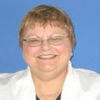 "A Grassroots History of Christianity" examines "who we are" today by tracing the history of that multifaceted phenomenon, Christianity, through the centuries. In addition to exploring influential people, developments, and ideas in that history, the course includes persons whose voices have not always been heard in the councils of the church, those of women, the laity, those living in non-Western nations, even heretics! The failures as well as the achievements of Christianity receive special attention. This class, taught by the Rev. Dr. Pat Ash (pictured above left), will offer stimulating, provocative, and transformative perspectives on the history of Christianity, inviting us all to more deeply embrace our Christian tradition while still courageously and truthfully confronting the ways in which Christianity has not always been able to live up to its own ideals. Through the wit and acuity of Dr. Ash, students will gain a deeper appreciation for the nature of "the tradition" and the ways in which contemporary Christian leaders are being called upon to make history in our own day and age. There are no prerequisites for this class and EEL students are welcome to enroll.
Global Anglicanism
For decades Bloy House has taught Anglicanism I and II and it is now time to recognize the many ways in which these classes have gradually been revised to reflect the needs of contemporary Episcopalians. "Global Anglicanism" will help participants understand what it means to be part of the larger Anglican Communion with its roots in Celtic Spirituality, Medieval piety, Reform theology, and the many diverse iterations Anglicanism has taken on since its dispersion through the colonial activities of the Church of England. Now the majority of Anglicans live in the global south and the Anglican Communion stretches across the globe, with each cultural and geographic region reshaping its expression of Anglican identity to meet the needs of its worshipers. Come learn about what it means in 2015 to be part of the Anglican Communion, and why despite our shared heritage we all see the world so differently from one another.
Episcopal History and Polity
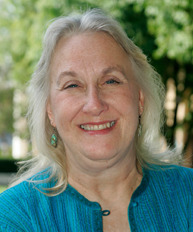 "Episcopal History and Polity" explores the question of what it means to be part of the Episcopal Church in the 21st century. It has become clearer to all Episcopalians as we seek to dialog with other denominations we hope to be in full communion with and with our global Anglicanism partners, that the Episcopal Church, a church made up of dioceses from sixteen different countries (the majority of which are situated in North, Central, and South America) has developed its own unique polity and ecclesiology. Much of that understanding of the nature of our church has grown out of our engagement with the baptismal covenant and the Christian identity and theology it has helped us to communally construct. This class offers students the opportunity to explore what it means to be a part of a church that is both a member of the Anglican Communion, and deeply rooted in the baptismal ecclesiology outlined in our own 1979 Book of Common Prayer. This class also offers students the opportunity to learn about the governing structures of our church and the canons (church laws) that circumscribe our actions and decisions. Both of these Anglicanism classes are open to Education for Episcopal Leadership students and no prerequisites are required. They are taught by the highly engaging, highly experienced Dr. Sheryl Kujawa-Holbrook (pictured above left).
|
|
EEL: Education for Episcopal Leadership
|
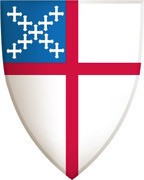 What is the EEL Track? What is the EEL Track?Most everyone knows that priests go to seminary prior to their ordination. And many people know that in the Diocese of Los Angeles deacons are also formed for their ministries in the Bloy House seminary setting. But what about lay people? The Education for Episcopal Leadership track was added to the Bloy House curriculum in 2009 to strongly encourage lay Episcopalians to consider attending classes at Bloy House to help equip them for their important ministries in the church. If our church is to flourish in the coming decades and centuries, it is vitally important that it be built upon the ministries of strong, well educated, well-formed lay leadership. We believe that there are countless Episcopalians and other Christians who have a deep yearning to know more about Holy Scripture, the theologies of the church, and the traditions and values of the Episcopal Church they have chosen to be a part of. EEL is designed to both encourage and support lay persons seeking to grow in knowledge and wisdom so that they, too, may be more effective leaders and ministers of the church.
The EEL track includes several programs.
As an EEL student one can audit course work at Bloy House paying a dramatically reduced rate from those preparing to receive Master's degrees, Certificates of Diaconal Studies, or Certificates of Anglican Studies. All courses offered at Bloy House are open to EEL students, although pre-requisites must be met for some classes before they can be taken. Sometimes classes have been designed specifically with a target audience of lay leaders. These include classes like "Media and Ministry", "Greek", "Jesus, Judaism, and Christianity," and some of our scripture electives. (EfM or its equivalent are required for the scripture elective classes.) EEL students pay $400 per semester class. Scholarships of $100 are available based upon need.
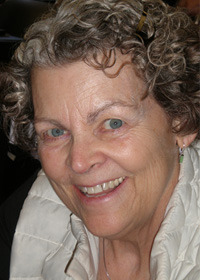 As an EEL student one may choose to participate in Fresh Start for Lay Leaders. This program which was originally developed through the work of the Church Pension Fund and Episcopal Church Foundation offers a semester long curriculum designed for lay leaders in congregations that are seeking to navigate an experience of transition. This might include a change in pastoral leadership, a change in mission strategy, development of new programs, worship services, or newly forming ethnic ministries, the development or revitalization of lay leadership roles and responsibilities. This program meets from 9 to 3 on teaching weekends in the spring, giving participants the opportunity to learn in the classroom and also be a part of the community life of Bloy House. Fresh Start tuition is $260. Fresh Start for lay leaders meets every spring semester and is taught by Canon Joanna Satorius (pictured above left).
As an EEL student one may pursue a lay certificate in specialized areas of interest. These include a certificate in Lay Preaching, a certificate in Christian Formation, and a certificate in Liturgical Leadership. English versions of these certificates are earned by taking classes or attending lectures and workshops at the Bloy House Claremont campus. There are also specific certificates given to lay persons who attend either the Instituto de Liderazgo where classes are taught in Spanish for those seeking to equip themselves as lay leaders or the Li Tim-Oi Center for those seeking lay leadership classes taught in Mandarin Chinese.
Education for Episcopal Leadership Lectures also allow Episcopalians to come and do short-term ninety minute courses on subjects that may be of particular interest to them. These lectures are always advertised well in advance through Bloy Houses News. This fall's lectures will include a lecture on our church canons and a lecture based upon seminarians' experiences at Cristosal Global School in San Salvador, El Salvador.
|
The Mission of the Church Seen Through New Eyes
Saturday, September 12, 4:30 - 6 p.m.
Three seminarians will lead this presentation, recounting their summer experiences at Cristosal Global School in El Salvador. On July 17 Laurel Coote of St. Cross, Hermosa Beach, Carol Horton-Howe of St. George's, Laguna Hills, and Robin Kassabian of Church of Our Saviour, San Gabriel, began a pilgrimage. Their goal was to be part of a conversation with Christians of Central America as together they sought to understand what ministry development and mission might mean from a Central American perspective. The deep learnings gained from this experience will be shared with the larger Episcopal community during a 90 minute presentation on Saturday September 12. Cost for the event is $15, which can be paid at the door. The presentation will take place in Butler building room 201. For more information contact bloyhouse@cst.edu. This event is free for current Bloy House students.
An Introduction to the Canons of the Church
Saturday, August 29, 4:30 to 6 p.m.
Our church is governed by a set of constitutions and canons that lay out the legal parameters of how individual congregations and dioceses must function. This workshop will allow participants to develop a basic mastery of both the material in the canons and the important nuances that one should understand when working with the canons. It includes discussions of the authority and responsibilities of all orders of ministry, governing boards, and procedures for dealing with concerns and authority questions within the church. Because this is a hands-on workshop it is essential that individuals pre-register in time to receive the needed worksheets that are a part of the workshop. Taught by the Rev. Dr. Sheryl Kujawa-Holbrook. Register by contacting bloyhouse@cst.edu. Cost of the workshop is $15; free for current Bloy House students.
|
|
Bloy House people at General Convention
It was a great year for Bloy House at General Convention with a number of Bloy House alumni/ae, trustees, and professors serving in important leadership positions in the church.
Sylvia Sweeney and Susan Russell both had the honor of serving on the General Convention Task Force on Marriage and watching that work come to fruition in the approval of the canonical change that will allow same sex marriage. Convention also approved the Task Force request to continue the work begun by the group as the church seeks to better articulate contemporary understandings of the nature of family, marriage, intimacy, and the place celibate life also plays in the lives of Christian people.
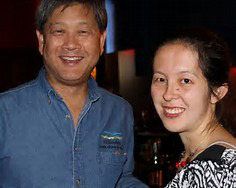 Steve Nishibayashi, vice-chair of the Board of Trustees of Bloy House, was elected to Executive Council of the Episcopal Church. It will be good for TEC to have his wisdom and experience as someone who has been actively engaged in dialogues regarding the nature of theological education (including non-residential models) for well more than 10 years now. Steve is pictured with his daughter, Kathryn, a deputy to General Convention from the Diocese of Los Angeles. Susan Snook of the Diocese of Arizona is a current Executive Council member and a Bloy House alumna. Susan was part of a group of millennial leaders in the church who spawned the Episcopal Resurrection social media group designed to help educate and inform General Convention delegates about important issues related to our mission as the people of God seeking to proclaim resurrection to the world. The work of this group helped to inform conversations related to several of the re-imaging the Episcopal Church proposals that were being made, and encouraged all who participated in convention discussions to do so in a manner that was deeply respectful of one another's dignity, values, and feelings.
Chris Yaw, alumnus of Bloy House, staffed the ChurchNext booth at General Convention helping to acquaint Episcopalians with the innovative work of ChurchNext in providing high quality online spiritual formation and theological education resources for lay persons.
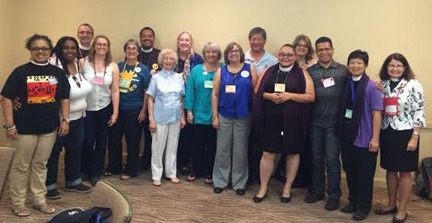 An alumni/ae and friends luncheon for Bloy House and Claremont School of Theology supporters was held during convention, giving alumni/ae from the 1970's through new incoming students and their families a chance to get to know one another and share Bloy House and CST stories. The event was hosted by Dean Sweeney and the Rev. Dr. Sheryl Kujawa-Holbrook, Bloy House professor and academic dean of Claremont School of Theology. Mary June Nestler was in attendance and was thanked for her many years of service to Bloy House as professor and dean. 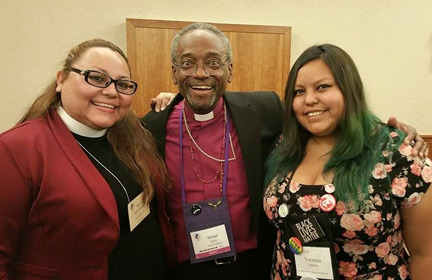 Alumna and recently appointed Bloy House Trustee Nancy Frausto and her sister Yenecia both served as members of the Hispanic Ministries delegation helping to further educate delegates about the important role Hispanic Ministries will play in the future of the Episcopal church and helping to shepherd important legislation regarding Hispanic ministries through the legislative process. Deacon Guy Leemhuis had the opportunity to serve as a deacon at several of the Eucharists during General Convention as well as working to support Hispanic Ministries initiatives. Above: Nancy and Yenecia pose with Michael Curry, who was elected at General Convention as the next presiding bishop of the Episcopal Church. Numerous other Bloy House alums, faculty, and trustees were present at convention serving as delegates to both the House of Deputies and the House of Bishops as well as serving in support capacities to the convention. It is an exciting time for us! We are watching as the Episcopal Church moves into its 21st century self as a church committed to inclusion and to shared leadership. As the church seeks to reconfigure its institutional priorities and programs to meet the needs of a new generation of Episcopalians, we are proud that Bloy House is having the opportunity to play a significant part in that important and worthwhile work.
|
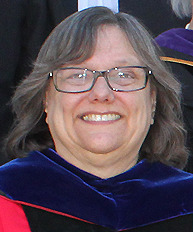
By Sylvia Sweeney
Do you remember the old bumper sticker that said "Think globally, act locally"? Perhaps we have learned that was a little over simplistic. We know now that we have to act globally too, that if we concentrate exclusively on what's going on in our own backyards then much of the world will not benefit from the wisdom, resources, and energy that together we can bring to big global problems. Nevertheless, I think that one of the great comforts of life is knowing that what I do locally does, even in unseen ways, impact the greater good, the global picture. We have just come through a General Convention that over and over again invited us to re-imagine the church, to begin new initiatives, to provide substantial (millions) to endeavors we have waved a little money at for decades in hopes that would be enough. We've focused a lot on the big picture. But now perhaps it is time to act locally.
If we are to re-imagine the Episcopal Church doesn't that suggest a need to re-imagine life in the Diocese of Los Angeles? In what ways does our own backyard need reinventing, re-imagining, and reforming? If the Episcopal Church has made a significant commitment to Hispanic and Latino ministries, how does that impact our life here in this diocese? If the whole church is launching into the first stages of the development of a new prayer book, how should we be participating in that endeavor in our own congregations? What might need renewal within our own worship life if we are to be about articulating a church for the 21st century? If the church is continuing to find ways to express a baptismal ecclesiology that calls for models of shared power and shared leadership, how might that impact the way we do business in our local congregations and in our diocese?
General Convention has invited us to think globally, but the good work of General Convention will only be realized if it now invites us to act locally. Together let us ponder how the decisions of General Convention, many of which sprang from clearly rising valuation of models of mutuality and as Bishop Tom Breidenthal describes it "an exodus from privilege," are inviting us to think and to act in our own homes, our own congregations, and our own diocese. Ponder and when you are done pondering -- now, before it is too late! -- take those ponderings to the next Bishop Coadjutor Search Committee Listening Session. If we want to build a future for our church one place to act is here, and the time to act is now.
|
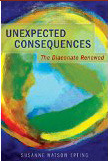 Unexpected Consequences:
The Diaconate Renewed
By Susanne Watson Epting
2015 Morehouse Publishing
I have just finished a book called Unexpected Consequences: the Diaconate Renewed by Susanne Watson Epting. First, I would say that if you are a deacon of the church this is an absolutely must read! Secondly if you are a priest of the church this book is vitally important for you in developing your own understanding of the important interrelationship between priestly, diaconal, and lay ministry. Thirdly, if you are a lay person in the church this book will make it emphatically clear to you why from a theological perspective the ministry of all the baptized, the true ministry of the laos (as all of the people of God) is the absolute core of the mission and identity of the Christian church. Using a historical lens, Epting focuses much of the message of this book around helping the church understand what it means in the diaconal vows for deacons to be given the charge to "interpret to the Church the needs, concerns, and hopes of the world." What becomes clear is that this charge is given to deacons because it is the work of all Christian persons to pray for, care for, and act in response to the needs, concerns, and hopes of the world. Deacons keep the church from ignoring or hiding from these realities and help empower all Christians to act in response.
Epting describes a series of "waves" of emphasis in the diaconate as it has developed and evolved since the first wave of modern missionary and indigenous deacons in the late 19th and early 20th century, to the second wave of deaconesses from 1885 to 1970, to the third wave of male perpetual deacons who served from 1952-1970, to the fourth wave of deacons made up of women and men who were finding their vocational identity within the context of new Episcopal trial prayer books and new understandings of Episcopal ecclesiology reshaping life in the church. The fifth wave comes when the time of transition in the church is over and the diaconate is beginning to see itself in light of the total ministry of the church and a new awareness of the meaning of servant ministry. This section provides an outstanding synopsis of the ways in which our understanding of ministry as a shared work built on shared leadership have so influenced the trajectory of our current church.
The sixth wave of the diaconate has emphasized the prophetic voice and the charge to interpret the needs, concerns and hopes of the world. In this section she highlights "the authority of the basin and the towel" as "symbols of power, of love, of mutuality" (80-81). She writes, "A structure which serves the poor is one thing; a structure which serves the poor while evoking their gifts and leadership and nourishing genuine friendships is quite different (81)." Epting describes wave seven as a time of integrating all these past learnings about the nature of the diaconate as an order of the church. In the final sections she invites us all to embrace some of the unexpected consequences of a renewed diaconate and a prayer book built upon a baptismal ecclesiology, consequences that call all Christian persons to take their place in the ministries of the church to the world even when that means transformation for the church in the process. She celebrates the essential and invaluable role that shared servant leadership, total ministry, will play in the mission of the church.
There are too many wonderful gems and quotes in this book to even begin to identify them all, but one I will leave you to ponder is a quote from Deacon Elaine Clements of the Diocese of Louisiana.
"I think the "new deacon," more than ever, has to be prepared to be a coach, empowering congregations and their work in the world. Relationship building is key to the process. People must be engaged to identify the gifts of their heads, their hands, and their hearts" (138).
What are the gifts of your head, your hands, your heart? And how might God be calling you to put them to work here and now in 2015?
|
|
Your support is appreciated
|
|
Financial contributions to support the work of Bloy House are appreciated year-round. Thank you for your consideration and generosity. Gifts may be mailed to Bloy House, the Episcopal Theological School at Claremont, 1325 N. College Avenue, Claremont, CA 91711.
|
|
|
|
|
|
In this issue: Please scroll down for more on upcoming courses and student and faculty activities.
|
An easy way to support Bloy House, ETSC
Support Bloy House by shopping at Amazon! It is very easy. Just go through this link, or go through Amazon smile. Log in using your existing Amazon account and then search "The Episcopal Theological School at Claremont" as your charity of choice. Bloy House gets 5% of all proceeds!
|
|
Bloy Bling
Just a reminder that Bloy House polo shirts (in Bloy House Blue with the Bloy House seal) and Bloy House coffee mugs are still available through the Bloy House office. Cost of the polo shirts is $26 and mugs are $10. Bloy House tippet seals are available through the office for $20.
|
|
Subscribe to
Bloy House News...
To add your name to our email list, please click here or send an email note to
bishopsoffice@ladiocese.org
|
|
|